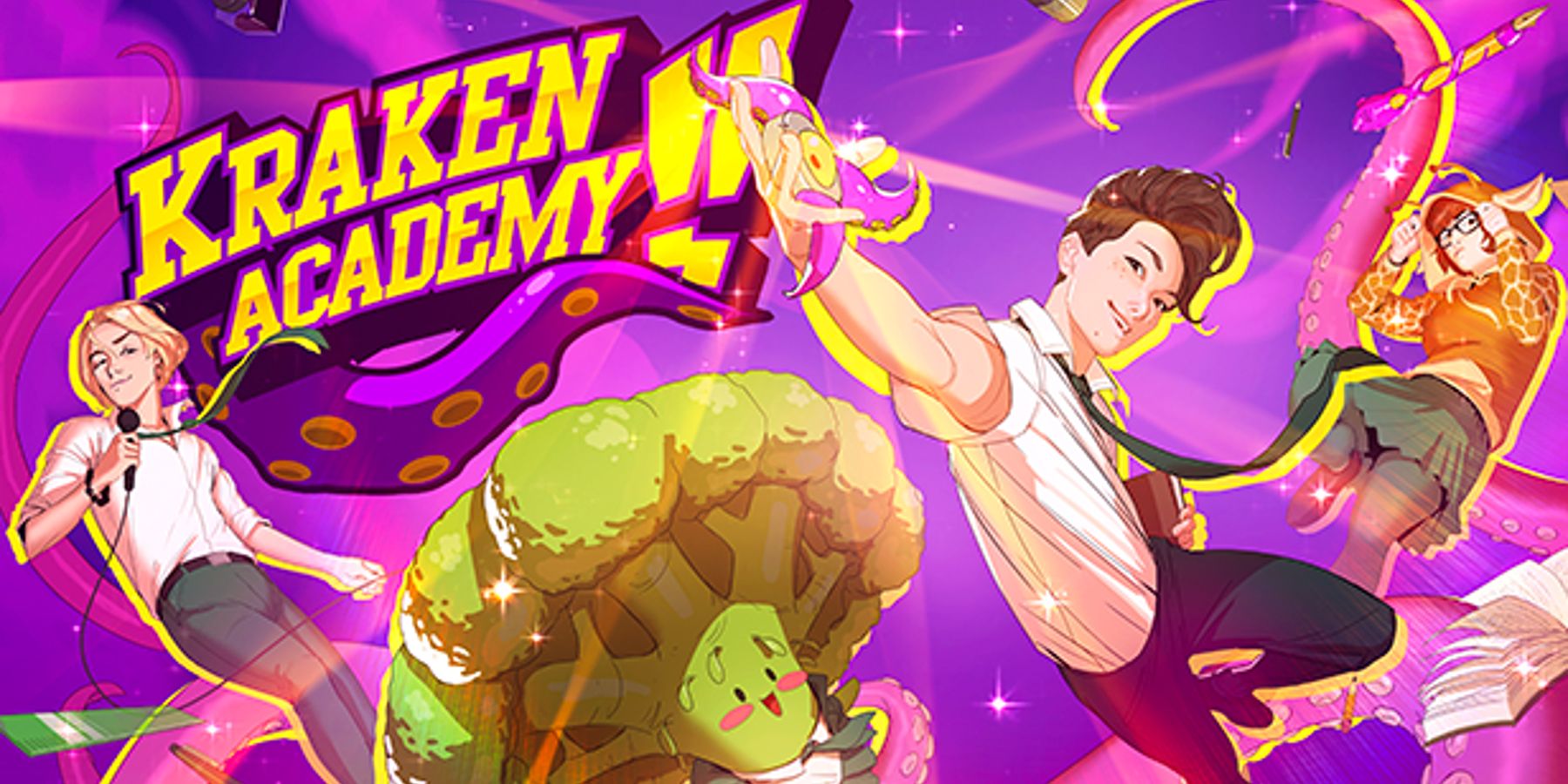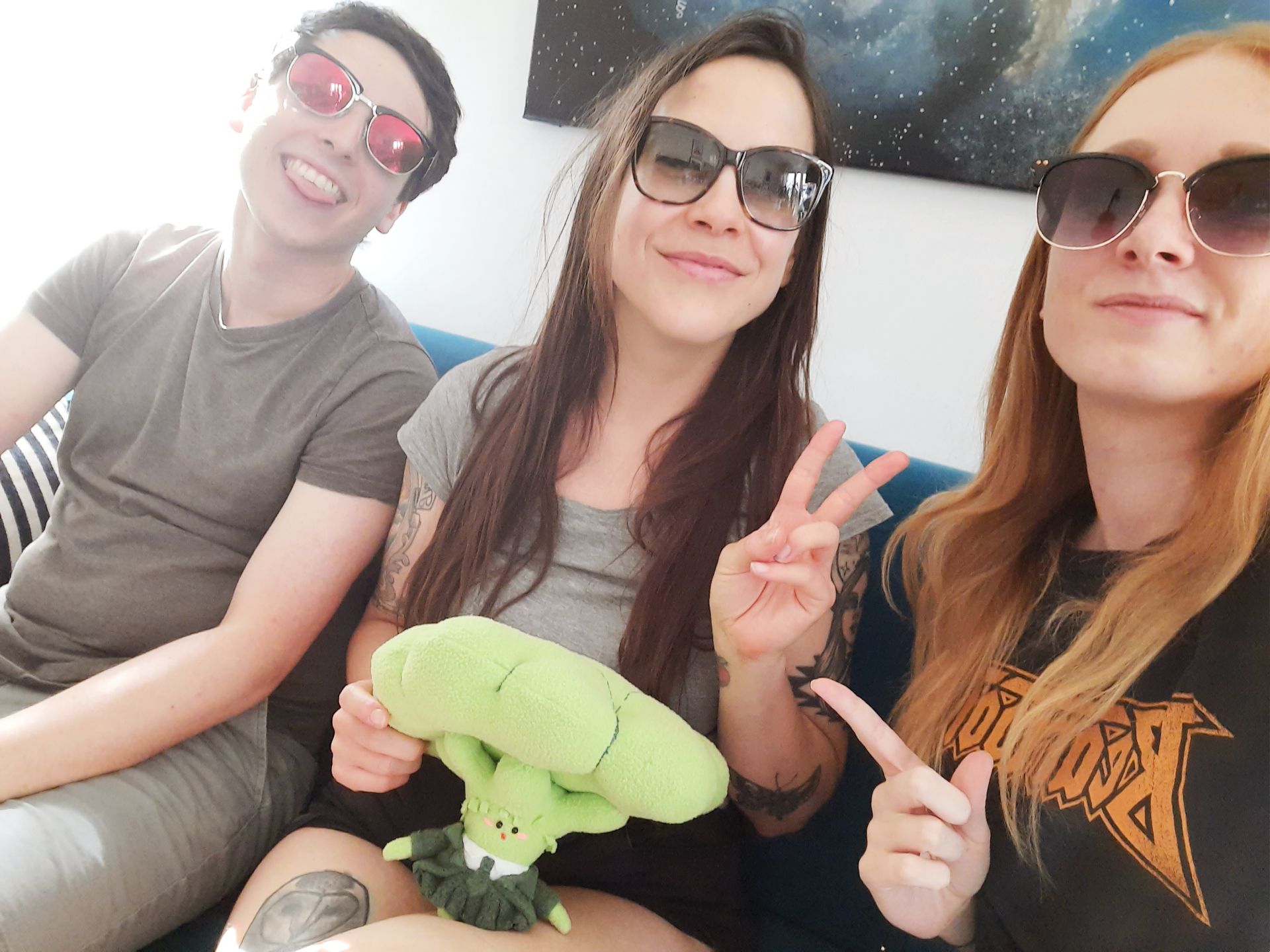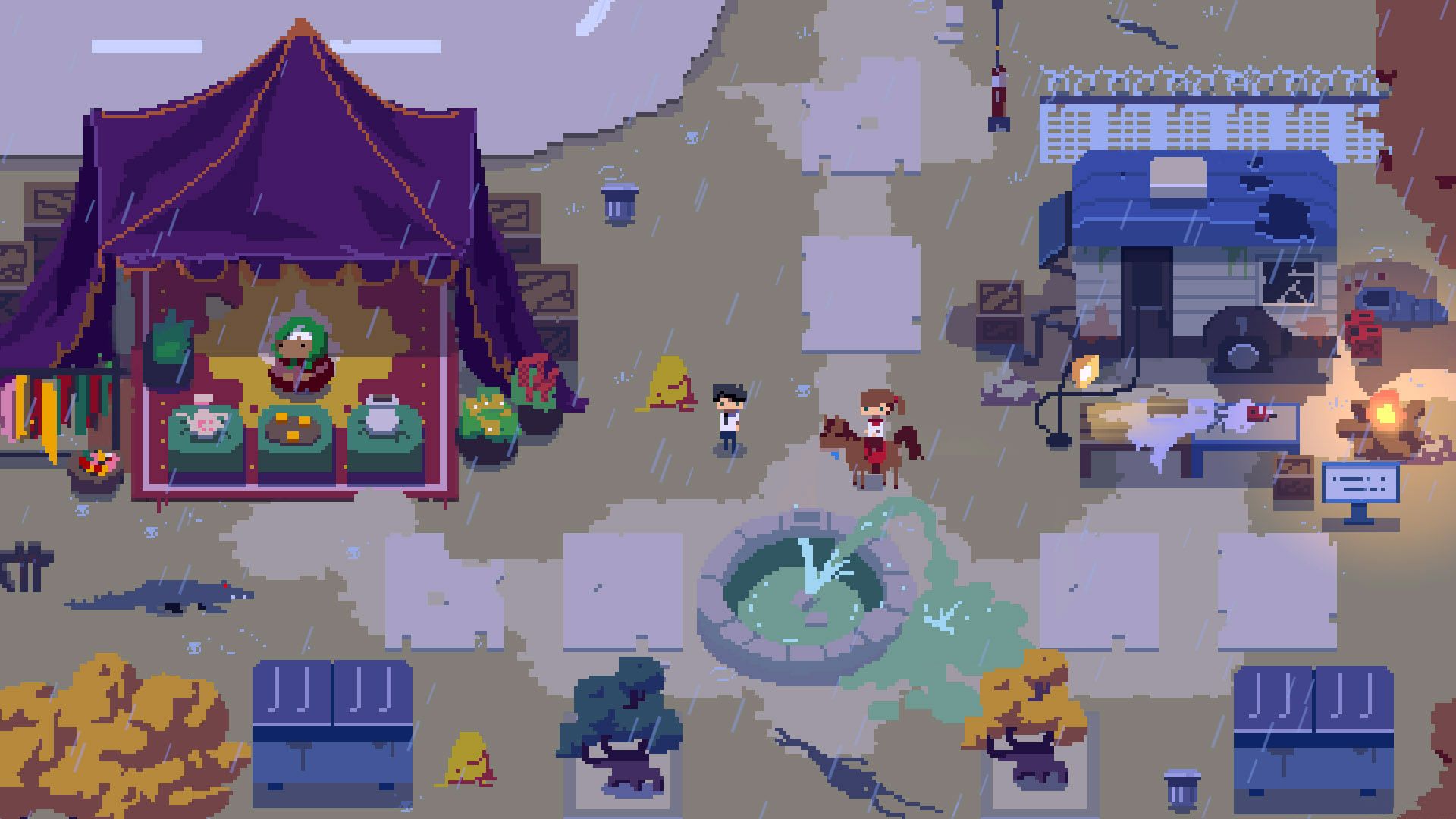Time loops are a common trope across all forms of media, from novels like All You Need Is Kill to movies like Groundhog Dog. Video games have thoroughly explored the idea, with arguably the most notable example being Nintendo's The Legend of Zelda: Majora's Mask - a direct sequel to the N64 classic Ocarina of Time. The darker tone of Majora's Mask and its three-day loop conceit forced players to learn Termina inside-and-out, which brought the game wide acclaim, and it's still the inspiration for new experiences like Happy Broccoli Games' Kraken Academy.
Described as a "technicolor fever dream" in its marketing, Kraken Academy follows Paul: a new student at the titular academy who has to stop it from being destroyed at the hands of the anonymous "Traitor" in just three days. By teaming up with a magical kraken, players repeat this three-day loop much like Link in Majora's Mask, learning different character behaviors and taking part in limited-time events. According to Happy Broccoli founder, artist, and writer Annika Maar, the team wanted to avoid this pressure becoming "super stressful." Game Rant spoke with Maar and marketing manager Irene Preuss about Kraken Academy's influences, humor, and accessibility options prior to its launch tomorrow.
The Origins of Kraken Academy
Based out of Berlin, Germany, Maar is largely known as a freelance illustrator whose fantasy-themed works can be found in board games (The Dark Eye), books (Orc Road Trip), video games (Eville), and more. She is also a burgeoning voice actor, though easily the biggest project she's provided her voice to so far is Kraken Academy, in which she plays two characters.
Kraken Academy began as a solo endeavor using the original idea for a comic book Maar was developing with her sister that mixed crazy supernatural elements, classic anime like Ranma 1/2 or Dr. Slump, and mundane slice-of-life school settings. That comic never worked out, in-part because Maar said, "I wasn't very good at it ... it's two very different things to make a comic versus an illustration." However, one night "I just woke up" and decided to make a video game, despite needing to teach herself how to code first.
"I started out in GameMaker, and it took me two years to make a prototype that was 10-minutes long. This was just weekends, without any funding ... I'm much better at making games than I am at making comics."
Maar hired Joni Levinkind, who developed the 2019 text adventure game Ord., as a programmer after visiting a co-living space in Sweden and showing him the prototype. Some time later, Preuss joined to focus on marketing while the others finished development. She introduced them to Coffee Stain - known for publishing Valheim, Deep Rock Galactic, and its own title Goat Simulator - which led to funding through its "Leveling the Playing Field" program aimed at smaller teams.
From there, they were able to double their budget via a Berlin public funding program that Maar said has "really good conditions." Developers pay back the loan if their game succeeds, but if not it eventually gets written off so as not to indept the team. Using this funding, as well as extra marketing pushes by publisher Fellow Traveller Games (known for the Homestuck-adjacent Hiveswap Friendsim and Paradise Killer), Happy Broccoli hired around 25 voice actors and two freelancers to do sound design, ran its own augmented reality game (ARG) to advertise, produced merchandise, ran an animated trailer during the E3 2021 Guerrilla Collective showcase, and more.
Kraken Academy's Familiar Gameplay Loop
The game is a largely casual experience. During each three-day cycle, players can focus on one of four clubs at the academy: art, music, drama, and sports. Maar said each of these is split into what she calls "pre-dungeon" and "dungeon" sections. Pre-dungeon sections are subject to the passage of time, so players have to learn the dynamics of each area, get to know its characters, and take on quests in the overworld. "It's like on Monday night you have to meet up with someone, go to extra art lessons, or whatever it is," she said.
Unlike Majora's Mask, time stops when players enter dungeon sections because "we didn't want it to be super stressful for people to have the pressure of time." These involve larger objectives with the characters Paul met previously, for example throwing him into an Ace Attorney-style court case with the art club to figure out who vandalized someone's painting. Each of these dungeon sections are capped off with an action-focused boss fight; one addition made possible by the game's funding and expanded development team to fix what Maar said were "anti-climactic" endings.
There are also side quests to take part in, some of which end off in light dating sim sections with characters like Broccoli Girl from the music club - Maar said, "I know people want to hang out with her and go on a date." These dates to places like waterparks or movies are meant to help people engage with the characters and don't impact the main storyline, Preuss said, but can earn players "friendship badges" that upgrade bottlemachines. Doing so makes it easier for players to earn money, which contributes to "completionist" elements like buying furniture for their room.
"You get to explore the school grounds and meet up with students or staff. Some of them will give you quests, and being able to go back in time and start at day one will allow you to meet with characters in areas you didn't have access to before."
Making Kraken Academy More Accessible
There are plenty more references throughout Kraken Academy beyond Majora's Mask and Ace Attorney, from its premise being heavily influenced by Danganronpa, to a particular "super random" Shrek reference Maar points out. "I just absolutely love Shrek, and it wasn't planned at the beginning but it sort of naturally went in there. It's like our personality slipped in."
The game's sometimes silly, sometimes dark humor is very lighthearted, Preuss said, as Maar believes the game is "meant to help take you out of your problems" even when riffing on ideas like an evil, capitalist company named Mepsi Corp. It's also built around the casual experience most will come looking for, including an invincibility mode for boss fights as well as an easy mode to help players through quick time events that Happy Broccoli's beta testing community "weren't keen on," but Maar said are "so engrained in the game that we can't really take it out." Kraken Academy also has dialogue subtitles in English, French, German, Simplified Chinese, Japanese, and Russian, according to its Steam listing.
Ultimately, Maar and Preuss hope a lot of people are able to play Kraken Academy and take away that, "everything is going to be okay." Maar said there's a throughline that you can talk with someone if you get in a fight or encounter some other problem. "No one is perfect, all of our characters are flawed - heavily flawed, but they're still loveable in a way." It's a wholesome experience according to Preuss, and the team has been very motivated by a community that's excited to see it come together.
Kraken Academy releases September 10 on PC.



